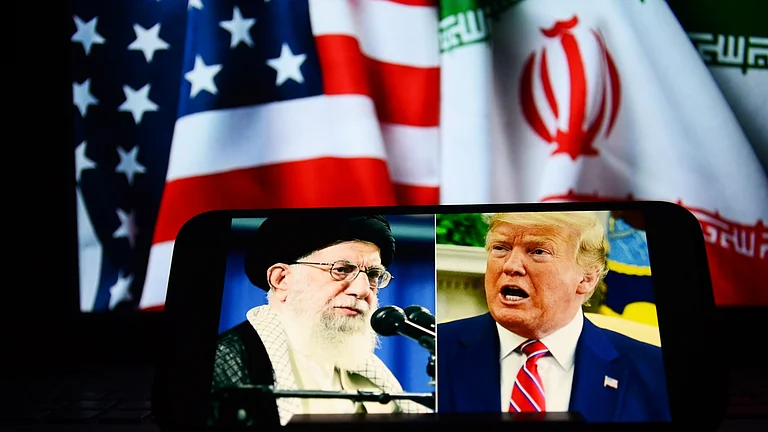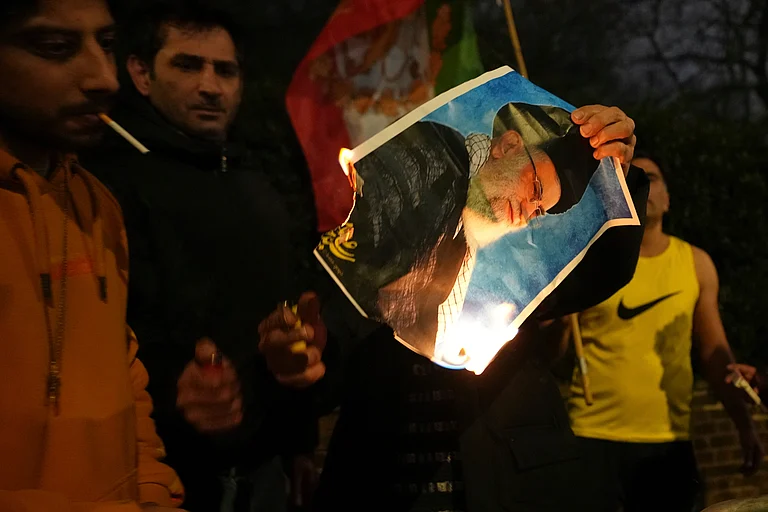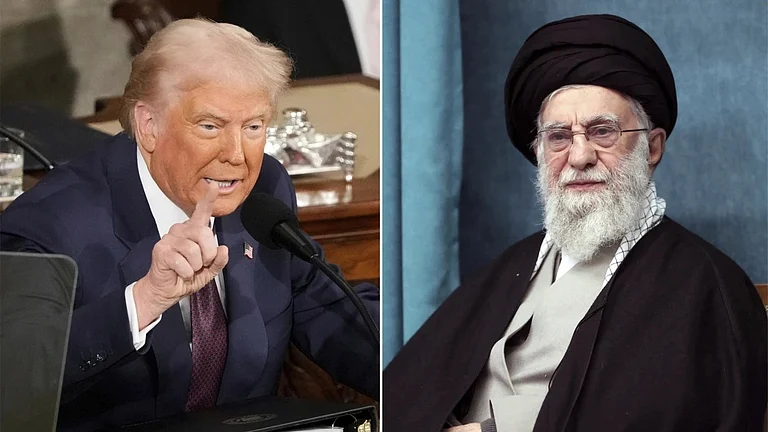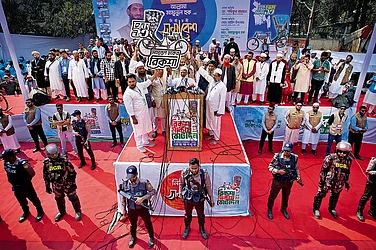Remarks by Ayatollah Ali Khamenei, the Supreme Leader of Iran, on Muslims in India have drawn flak, with the Indian Ministry of External Affairs (MEA) deploring the comments as "misinformed and unacceptable" and even an Israel envoy now echoing the same thoughts.
Talking about suffering of Muslims while addressing a gathering of clerics in Tehran on Monday, Khamenei listed Gaza, Myanmar and India as well.
"The enemies of Islam have always tried to make us indifferent with regard to our shared identity as an Islamic Ummah. We cannot consider ourselves to be Muslims if we are oblivious to the suffering that a Muslim is enduring in #Myanmar, #Gaza, #India, or any other place," Khamenei posted on microblogging platform 'X' in a series of posts on the event.
External Affairs Ministry spokesperson Randhir Jaiswal said countries commenting on minorities in India should look at their "own record" before making any observations about others.
"We strongly deplore the comments made regarding minorities in India by the Supreme Leader of Iran. These are misinformed and unacceptable," Jaiswal said on Monday.
"Countries commenting on minorities are advised to look at their own record before making any observations about others," Jaiswal added.
Israel’s Ambassador to India, Reuven Azar, also criticised Khamenei his remarks on Muslims in the country, saying "You are a killer and oppressor of your own people. Muslims in Israel, India and all democracies enjoy freedom, which is denied in Iran. I wish the people of Iran will be free soon."
Who Is Khamenei
Sayyed Ali Hosseini Khamenei is an Iranian Twelver Shia marja' - marja' is is a title given to the highest level of cleric of Twelver Shia, a branch of Shi'a Islam. Khamenei is an Iranian politician politician who has served as the second Supreme Leader of Iran since 1989.
Khamenei previously served as the third president of Iran from 1981 to 1989. His 35-year-long rule makes him the longest-serving head of state in the Middle East, as well as the second-longest-serving Iranian leader of the last century after Shah Mohammad Reza Pahlavi.
Khamenei was born on April 19, 1939, in Mashhad city in the province of Khorasan. Sayyed Ali Khamenei was the second son of Sayyed Javad Khamenei, a humble Islamic scholar.
According to Khamenei's website, in 1962 in Qum, he joined the ranks of the followers of Islamic revolutionary Imam Khomeini who opposed the pro-American, anti-Islamic policies of the then regime of Mohammad Reza Pahlavi, commonly referred to in the Western world as Mohammad Reza Shah, the last monarch of Iran.
Khamenei subsequently went on to lead the 1979 Islamic Revolution Revolution that overthrew the Pahlavi dynasty.
"Shortly before the triumph of the Islamic Revolution (February 11, 1979) and before Imam Khomeini's return to Iran from Paris, an Islamic Revolutionary Council was formed at the behest of the Imam. Ayatollah Khamenei was appointed as a member of this Council together with other important Islamic notables such Shahid Ayatollahs Motahhari and Beheshti. He, therefore, left Mashhad for Tehran to take up his new responsibilities," Khamenei's website reads.
After the Iranian revolution, Khamenei was the target of an attempted assassination in June 1981 that left his right arm paralysed.
Khamenei's Key Roles
1980:
Founding member of the Islamic Republic Party.
Deputy-Minister of Defence
Supervisor of the Islamic Revolutionary Guards
Elected Tehran MP in the Majlis (Consultative Assembly)
1981:
Active presence at the fronts of the Iraqi-imposed war.
1982:
Elected President of the Islamic Republic of Iran following the death of President Mohammad Ali Rajai
Appointed Chairman of the Revolution's Cultural Council.
1986:
President of the Expediency Council
Re-elected President of the Islamic Republic for a second four-year term
1989:
Elected as the Leader of the Islamic Republic of Iran by the Assembly of Experts after the demise of Imam Khomeini.
1990:
Chairman of the Committee for Revision of the Constitution.


























